|
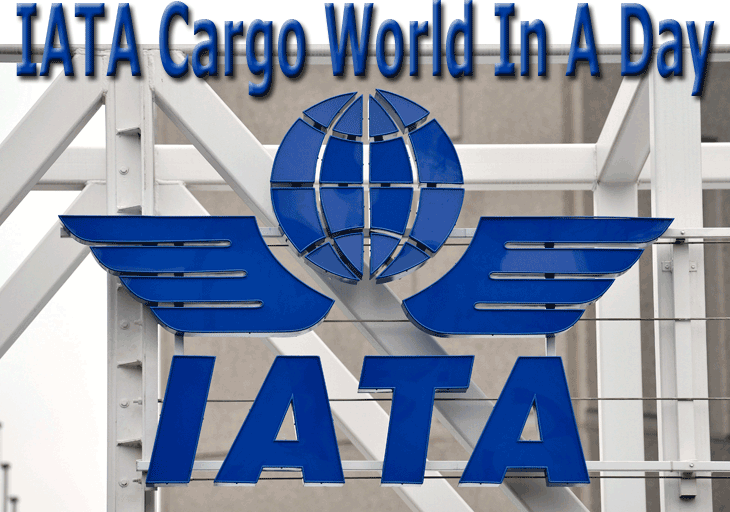
(Editors
Note: In case
you missed it,
IATA Air Cargo
Media Day was
held just before
Christmas on
December 13,
2012, in Geneva,
Switzerland.)
  n order to present
the most comprehensive
coverage of
this event,
FlyingTypers
has saved this
story and is
presenting it
as a single
subject issue
so that you,
dear reader,
have a few days
to digest the
contents, which
are so rich
with issues
that touch us
all.
n order to present
the most comprehensive
coverage of
this event,
FlyingTypers
has saved this
story and is
presenting it
as a single
subject issue
so that you,
dear reader,
have a few days
to digest the
contents, which
are so rich
with issues
that touch us
all.
We
return with
Part Two of
IATA Air Cargo
Media Day next
Friday, January
25.
Tony
(The) Tyler,
IATA Director
General and
CEO, launched
IATA Cargo Media
Day, declaring:
“I
have a strong
personal interest
in cargo from
my days at Cathay
Pacific—it
is an essential,
fully integrated
part of the
[airline] business.
“It
is sad to report
that cargo has
lost ground,
with a -2 percent
decline in 2012
versus a 5.3
percent growth
for passengers.
Tony
remarked that
“E-freight
is the future
of the business”
and “e-AWB
is harder than
we thought,”
with some ambitious
targets going
forward in terms
of penetration:
20 percent of
all shipments
by 2013, 50
percent by 2014
and 100 percent
by 2015.
“For
today I’d
like to focus
on value, innovation,
security and
sustainability
as they relate
to cargo…and
hopefully contribute
to a more profitable
industry.”
The
DG’s candor
came across
as refreshing,
with remarks
such as “cargo
is a volatile
business with
a cycle of boom
and bust periods,”
and “integrators
will only get
stronger,”
but concluding
that “cargo
will return.”
“IATA
has a huge agenda
for improvement.
We’re
working to help
make cargo more
secure, and
we want to be
champions of
the value of
air cargo.
“By
helping to drive
new quality
standards for
infrastructure
and operations,
we want to find
new talent to
build the next
generation of
cargo leaders.
“IATA
is committed
to modernizing
the Cargo Agency
Program, and
to achieving
unity for the
industry’s
high level goals
through the
GACAG.
“Finally,
we want to make
this industry
sustainable,
both financially
and environmentally,
so that the
benefits of
air freight
can continue
to enhance people’s
lives,”
said Tony The
Tyler.
There
was the acknowledgment
that the cargo
agency program
needed modernization
to fit the new
reality of the
forwarder as
customer of
the airline.
It
seemed that
all players
on the IATA
cargo team from
the top down
have been singing
from the same
hymn sheet.

Too
bad Des Vertannes,
IATA Global
Head of Cargo,
who has done
a lot of good,
couldn’t
participate,
having been
recently injured.
Everyone in
air cargo, ourselves
included, wished
Des a full and
speedy recovery.

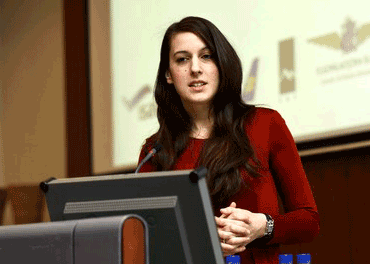 IATA
Senior Economist
Julie Perovic
brought figures
and analysis
(plus a tiny
glimmer of hope
for some small
improvement
down the road)
driven by increasing
business confidence. IATA
Senior Economist
Julie Perovic
brought figures
and analysis
(plus a tiny
glimmer of hope
for some small
improvement
down the road)
driven by increasing
business confidence.
Julie
said “the
pattern of economic
growth has changed”—world
trade is expanding,
but air cargo
volumes are
falling, with
lower growth
for western
economies typified
by high value/low
weight goods
that have been
in decline,
and the main
factor for the
air cargo market
malaise. Middle
East and African
airlines have
experienced
solid growth,
especially the
Middle East
with a 20 percent
increase, therefore,
“development
of trade with
Africa was key”—something
we had heard
not too long
ago from the
CSCMP.
Asked
whether the
higher FTKs
for these carriers
translated into
profitability,
Julie said that
required further
investigation.
FTK
and profit are
not necessarily
the same at
all.
Ms.
Perovic went
on to say that
“U.S.
consumer outlook
could help outset
some of that
downward pressure
on demand.”

 Glyn
Hughes, IATA
Director Cargo
Industry Management,
shared his views
regarding the
reshaping of
air cargo in
the coming decade
based on his
belief that
air cargo “needs
a new vision”
for the next
ten to twenty
years. He said
that “when
we examine the
real cost of
aviation over
the last four
decades, we
see that the
industry has
achieved significant
reductions in
overall costs
of transportation,
all of which
has been passed
onto the traveling
public and shipping
community. Glyn
Hughes, IATA
Director Cargo
Industry Management,
shared his views
regarding the
reshaping of
air cargo in
the coming decade
based on his
belief that
air cargo “needs
a new vision”
for the next
ten to twenty
years. He said
that “when
we examine the
real cost of
aviation over
the last four
decades, we
see that the
industry has
achieved significant
reductions in
overall costs
of transportation,
all of which
has been passed
onto the traveling
public and shipping
community.
“This
has led to what
many call an
underinvested
environment,
with air cargo
in particular
suffering from
a general shortage
of investment
funds.
“The
complex interfaces
in air cargo
drive costs
and slow, inefficient
processes. “Consumer
patterns have
changed, which
begs the question
for the industry:
how to stay
relevant?”
The
impression is
that while the
trends are self-evident,
the solutions
are not, and
the prescription
sounded a bit
flat, of the
‘motherhood
and apple pie’
variety—alignment
with customer
demands [which
can be B2C/C2C,
not necessarily
B2B]; reducing
costs; simplifying
processes and
embracing technology;
innovation;
collaboration
and “redefining
relationships
with the forwarders.”
Hardly
revolutionary
and inspirational,
and, to quote
Glyn, “address
‘click-buy-fly’
individual consumer
demand,”
something the
integrators
have honed into
a fine art.
These are all
good things,
but saying that
“…as
an industry
we must lead
by example…we
must also examine
how new developments
in cloud-based
computing can
evolve our industry
by looking at
the data we
are exchanging
and how to use
it better, rather
than focusing
on the manner
of how we exchange
it,” might
not be enough
if it’s
all IATA can
do in support
of its members.
Personally,
we think real
innovative developments
will come from
individual carriers.

 Air
cargo security
was tackled
by Frederic
Leger, Head
of Cargo Business
Process &
Standards, who
quoted Tony
Tyler: “The
future of air
cargo security
is a multi-layered
approach involving
the whole supply
chain and including
both advanced
electronic information
and physical
screening. Air
cargo security
was tackled
by Frederic
Leger, Head
of Cargo Business
Process &
Standards, who
quoted Tony
Tyler: “The
future of air
cargo security
is a multi-layered
approach involving
the whole supply
chain and including
both advanced
electronic information
and physical
screening.
“But
we don’t
want to see
100 percent
screening at
airports, which
would grind
global commerce
to a halt.”
Indeed,
the use of Advance
Electronic Information
(AEI) and global
harmonization,
the use of modern
screening technologies,
and the IATA
developed Consignment
Security Declaration
[now only in
paper] and its
electronic version
(e-CSD, which
harmonizes reporting
of physical
security information)
were cited as
specific components
of an all-encompassing
foundation.
AEI
has been implemented
or is under
consideration
in 156 countries
as a Customs
instrument.
Frederic confirmed
that ACAS (US
CBP) is “an
additional layer
of AEI”
which IATA has
been involved
in promoting
and supporting.
Frederic
mentioned IATA’s
involvement
in GACAG’s
security task
force, participation
in ACAS pilots
in the U.S.
and EU, security
education and
promotion and
the Secure Freight
program.
The
latter has seen
completed pilots
in Malaysia,
Kenya, Mexico,
Chile, and Egypt
by the end of
this year, with
Brazil, UAE,
Jordan, and
Bahrain under
discussion.
“This
will provide
the foundations
for more extensive
implementation
of Secure Freight
(SF) by additional
states on a
global basis
starting in
2014,”
said Mr. Leger.
In
response to
FlyingTypers’
question, Frederic
elaborated that
“the e-CSD
will be a modified
FWB, with implementation
expected by
2014”!
So
the all-singing-all-dancing
FWB is taken
to task yet
again—contrast
that with the
previous “new
vision”
statement.

The
IATA Canter
of Excellence
is aimed to
provide training
for “independent
security validators”
and “create
pre-validation
self-assessment
tools for the
airlines.”
It also smacks
as yet another
avenue for IATA
to insert itself
into an issue
and generate
some revenue
by stating its
goals as “setting
up a database
of independently
validated Regulated
Agents and Known
Consignors”
and “setting
up a database
of individuals
successfully
completing the
IATA Independent
Security Validation
course.”
Especially since
the EU has its
mandated certified
known shipper
registration
program due
on March 25,
2013; in the
U.S., the TSA
has its Known
Shipper Data
Management System
and the industry
has compliance
officers and
procedures that
predate this
IATA initiative.

 Guillaume
Drucy, IATA
Head of Cargo
e-Business,
broached the
e-Cargo theme.
He aptly defined
the air cargo
industry paradox:
that of carrying
the world’s
most advanced
products with
antiquated processes
and technology. Guillaume
Drucy, IATA
Head of Cargo
e-Business,
broached the
e-Cargo theme.
He aptly defined
the air cargo
industry paradox:
that of carrying
the world’s
most advanced
products with
antiquated processes
and technology.
“e-freight
represents a
significant
change for the
entire industry,
combining regulatory,
legal, technical
and business
process reengineering.
“e-Cargo
requires collaboration
between airlines,
forwarders,
handlers, shippers,
and regulators
across all continents,”
said Mr. Drucy.
Guillaume
stated that
industry collaboration
as embodied
by the GACAG
e-freight roadmap
has been endorsed
by its participants
and the scope
of work divided
into three pillars:
advocacy work
with governments
and regulators;
elimination
of core paper
transport documents
(Air Waybill,
House Manifest,
Flight Manifest,
Security Declaration)
and digitization
of commercial
documents (led
by the forwarder
and shipper
associations);
and a welcome
correction of
the IATA former
overreach.
“The
eventual goal
of the e-freight
project remains
2015, and a
paperless environment
for all transport
documents on
all feasible
trade lanes
(with a target
of 80 percent
of global trade
lanes)”
with specific
goals for each
pillar set for
2013, including
achieving 20
percent e-AWB
adoption.
The
IATA board met
the previous
week and reinforced
its commitment
to accomplish
100 percent
e-AWB by the
end of 2015,
recognizing
current slippage
in the prevailing
economic climate.
At
presently 5.6
percent worldwide,
it is the equivalent
of 90,000 shipments
a month.
IATA
drafted the
e-AWB multilateral
agreement to
facilitate and
enable efficient
processing i.e.
multiple airlines
and forwarders
sign the IATA
agreement, eliminating
the need for
each party to
individually
sign with each
other (which
would have generated
more paper than
e-AWB saved).
Progress
has been made
with the following
airlines: LX,
EK, AF, KL,
QT (joined)
BA, IB, CX,
DL, LH, QF,
and LA (pending);
and forwarders
DGF, Kintetsu
(joined) Schenker,
Panalpina, Expeditors,
SDV, Aramex,
CEVA, Agility,
Rhenus, and
Logwin (pending).
Geographically,
there are positive
indications
from Iraq, Russia,
and Sri Lanka,
with Thailand,
the Philippines,
Indonesia, and
Vietnam engaged
in consultations,,
and Bangladesh
yet to be engaged.
At
the other end
of the spectrum,
China (where
most of the
business resides)
still requires
a paper air
waybill….
Data
quality must
be very high
and consistently
reliable for
e-AWB to work;
to that end,
IATA foresees
sunsetting the
Cargo-IMP standard
by 2014 in favor
of Cargo-XML
and using the
Message Improvement
Program (MIP).
Airlines
and forwarders
may continue
to use Cargo-IMP,
but it will
no longer be
maintained and
published by
IATA.

Steve
Smith, IATA
GACAG e-commerce
task force chairman
and Head of
e-Business Air
Freight for
DHL Global Forwarding
highlighted
the value of
e-freight/e-AWB
for forwarders
in terms of
communication
between forwarders
and shippers,
and the fact
that the technology
eliminates the
need to create
the proverbial
pouch. “Industry
adoption remains
key with a credible
plan for moving
forward, simplifying
the air waybill
initiative.”
The
GSF (global
shippers’
forum) will
run a survey
regarding digitized
documents.
FlyingTypers
again raised
the question
concerning the
absence of standardized
procedures governing
the transmission
and handling
of more than
one FWB, especially
in an e-AWB
environment,
where errors
and inconsistencies
at the front
end will result
in more work
and higher costs
at the back
end during the
settlement process.
Frederic
Leger clarified
that a possible
solution being
considered was
an FOH message
to signal a
status change
to the forwarder
and solicit
a correction.
There
was a difference
between administrative
changes (street
address) and
revenue related
(pieces, weight,
dimensions,
destination).
The
effect would
be the acceptance
of multiple
FWB.
We
will continue
to stress the
importance of
this critical
issue that doesn’t
seem to rise
to the level
of attention
and focus needed
to address and
resolve this
fundamental
problem, Cargo-IMP
or XML, no matter.

Ground
Handling, the
COAG (cargo
operations advisory
group), and
its current
membership (airlines
Air Canada,
Air France,
Cargolux, Emirates,
Etihad, FedEx,
Finnair, AND
LAN Cargo; and
handlers WFS,
DNATA, Fraport
Cargo Services,
Menzies Aviation,
Swissport, and
DAL Global Services)
was the closing
subject of the
day [Flying
Typers
reported on
this on October
15, 2012 –
Here
Comes COAG]:

At The World
Cargo Symposium
in Doha on March
12-14, 2013
the focus will
be “Action
for Sustainability”
for the long
term, and there
will also be
a “future
air cargo executive
summit”
to facilitate
interaction
among current
and future air
cargo ambassadors.
According
to DG Tony Tyler,
the next IATA
AGM will include
a cargo CEOs
panel to continue
to elevate the
importance and
profile of cargo.
In
summary, while
not unexpected,
one has come
to see lots
of process and
procedural information
and initiatives
from IATA cargo.
The
Global Media
Day that we
cover here next
Friday touches
on some truly
future oriented
ideas that make
the increasing
gap between
passengers and
cargo seem even
greater.
But
that’s
a story for
another day.
Ted
Braun
|

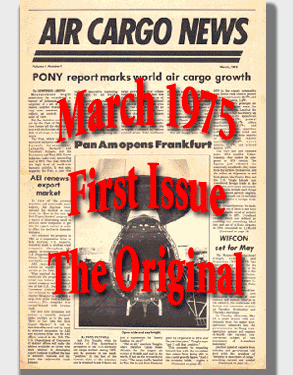





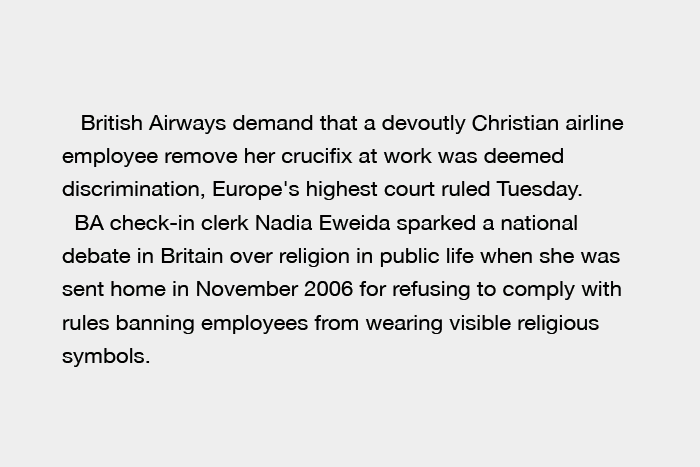
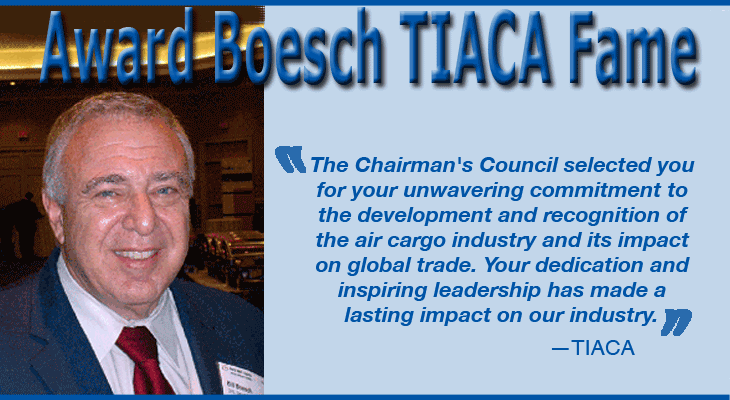




 IATA
Senior Economist
Julie Perovic
brought figures
and analysis
(plus a tiny
glimmer of hope
for some small
improvement
down the road)
driven by increasing
business confidence.
IATA
Senior Economist
Julie Perovic
brought figures
and analysis
(plus a tiny
glimmer of hope
for some small
improvement
down the road)
driven by increasing
business confidence.
 Glyn
Hughes, IATA
Director Cargo
Industry Management,
shared his views
regarding the
reshaping of
air cargo in
the coming decade
based on his
belief that
air cargo “needs
a new vision”
for the next
ten to twenty
years. He said
that “when
we examine the
real cost of
aviation over
the last four
decades, we
see that the
industry has
achieved significant
reductions in
overall costs
of transportation,
all of which
has been passed
onto the traveling
public and shipping
community.
Glyn
Hughes, IATA
Director Cargo
Industry Management,
shared his views
regarding the
reshaping of
air cargo in
the coming decade
based on his
belief that
air cargo “needs
a new vision”
for the next
ten to twenty
years. He said
that “when
we examine the
real cost of
aviation over
the last four
decades, we
see that the
industry has
achieved significant
reductions in
overall costs
of transportation,
all of which
has been passed
onto the traveling
public and shipping
community.  Air
cargo security
was tackled
by Frederic
Leger, Head
of Cargo Business
Process &
Standards, who
quoted Tony
Tyler: “The
future of air
cargo security
is a multi-layered
approach involving
the whole supply
chain and including
both advanced
electronic information
and physical
screening.
Air
cargo security
was tackled
by Frederic
Leger, Head
of Cargo Business
Process &
Standards, who
quoted Tony
Tyler: “The
future of air
cargo security
is a multi-layered
approach involving
the whole supply
chain and including
both advanced
electronic information
and physical
screening.  Guillaume
Drucy, IATA
Head of Cargo
e-Business,
broached the
e-Cargo theme.
He aptly defined
the air cargo
industry paradox:
that of carrying
the world’s
most advanced
products with
antiquated processes
and technology.
Guillaume
Drucy, IATA
Head of Cargo
e-Business,
broached the
e-Cargo theme.
He aptly defined
the air cargo
industry paradox:
that of carrying
the world’s
most advanced
products with
antiquated processes
and technology.


